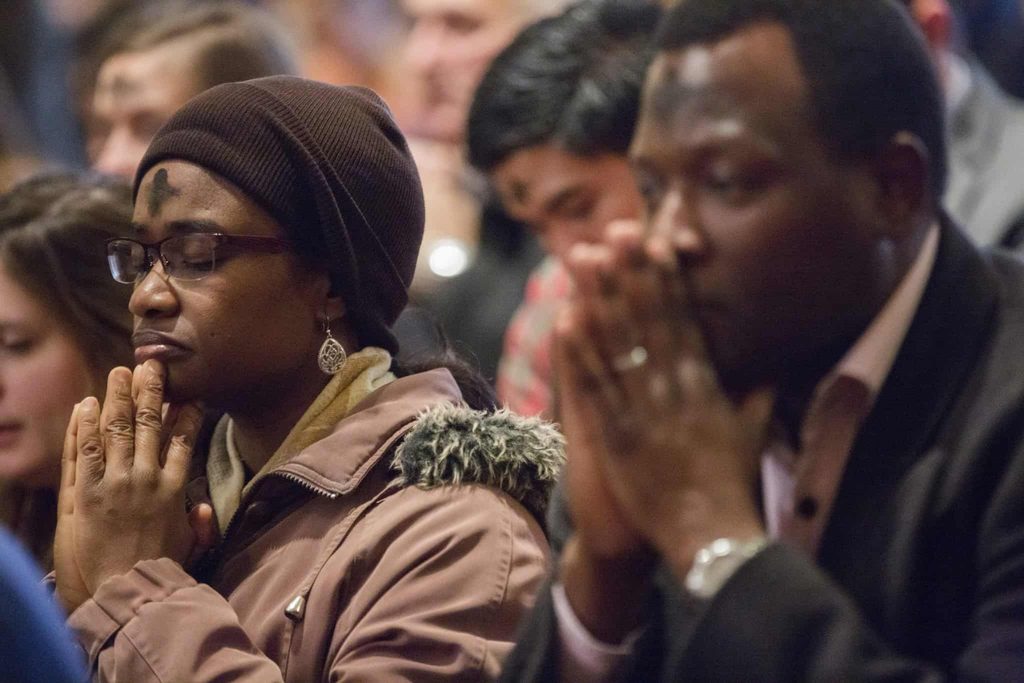ike Lent, Ramadan is a sacred period of fasting, prayer, and deep reflection, observed by millions worldwide as a way of growing closer to God. Both traditions emphasise self-discipline, sacrifice, and a renewed spiritual connection.
For Roman Catholics, Lent is a solemn season of repentance, self-denial, and spiritual renewal. It commemorates the 40 days Jesus spent fasting in the wilderness, resisting temptation, and preparing for His ultimate sacrifice.
Lent leads up to Good Friday and Easter, reminding believers of Christ’s suffering, crucifixion, and resurrection – an expression of divine love and redemption.
For Muslims, Ramadan is the holiest month of the year, a time of fasting from dawn to dusk, prayer, and increased devotion.
It marks the period when the Quran was first revealed to the Prophet Muhammad.
Fasting during Ramadan is not merely about abstaining from food and drink.
It’s a spiritual discipline designed to foster self-control, gratitude, humility, and compassion for those in need. It’s a time for Muslims to deepen their faith and relationship with God, seek forgiveness, and practice generosity.
Though observed differently, Lent and Ramadan share a common purpose – to purify the heart, strengthen faith, and draw believers closer to God through sacrifice, prayer, and introspection.
The deeper challenge — the Role of Interpretation
While most Muslims, who observe the sacred spirit of Ramadan, do so as a time of peace, reflection, and self-improvement, some find themselves caught between a rock and a hard place due to differences in interpretation.
Islam, like Christianity, has multiple sects and schools of thought. The issue arises with fundamentalist groups who interpret certain Quranic verses, such as Sura 5:33, in a literal and sometimes extremist manner.
For them, Ramadan may carry a different meaning, shaped by their ideological extremism rather than the core moral message of the theological truth.
This raises an important question: Why is there a distinct difference between sects in how they approach Ramadan?
The parallel can be drawn with Lent. While Roman Catholics traditionally observe Lent, other Christian denominations such as Protestants and Evangelicals do not necessarily follow the same practices.
Likewise, within Islam, different sects and schools of thought have varying interpretations of Ramadan and Islamic teachings.
At its core, however, both Lent and Ramadan are meant to be times of personal transformation – a return to God, a deepening of faith, and a renewal of the soul.
But history has shown that the way religious teachings are interpreted can either connect and uplift humanity or create discord, division and even hatred fuelled by the fury of fundamentalist extremism.
Perhaps the real challenge for all believers — Muslims, Christians, Jews and people of faith everywhere – is to seek the essence of these sacred traditions: love, humility, and a sincere pursuit of truth, rather than rigid dogma or division and prejudice towards people of different faiths and ethnicities.
That’s what we should be celebrating and thankful for — that we’re all brothers and sisters in the eyes of our Heavenly Father.
And if anything, love should be the overarching bridge of everyone’s faith that becomes the unifying symbol of our relationship with each other — not division, discord and hatred that certain fundamentalist and prejudiced groups of people preach as their mantra.
Because none of their prejudiced beliefs and practices have any substance in the kingdom of God.
Eid Mubarak to all our Muslim brothers and sisters and blessings to our brothers and sisters in the Roman Catholic community who are observing Lent.
May Almighty God use this time to unite us all under the banner of His love.
Because, religion aside, at the end of the day we’re all children of Almighty God.
The author says most Muslims, who observe the sacred spirit of Ramadan, do so as a time of peace, reflection, and self-improvement. Picture:WWW.VISITDUBAI.COM



